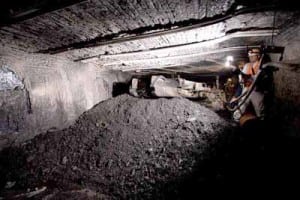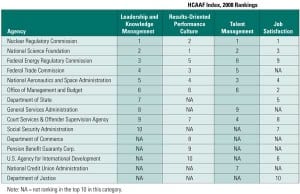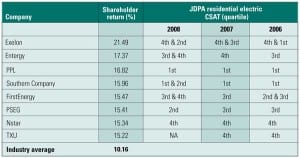Legal & Regulatory
-
Commentary
Regulatory Effectiveness: Is It Measurable?
A [state utility regulatory] commissioner asked recently, “By what metrics can I assess my commission’s performance?” That’s a tough question.
-
Legal & Regulatory
Looking Downstream After the Cooling Water Case
In the wake of the recent U.S. Supreme Court ruling related to cooling water intake practices at large power plants, many utilities are relieved to be off the hook as far as implementing expensive control upgrades to protect fish and other aquatic organisms.
-
Legal & Regulatory
Supremes Back Cost Reviews on Cooling Water
The Supreme Court backs restrictions on “once-through” cooling for new plants, while giving a pass to existing plants.
-
Legal & Regulatory
Coal Companies Peabody, CONSOL, and Arch Are Weathering the Economic Storm
Coal continues to demonstrate considerable financial muscle in the current economic downturn, despite anti-coal rhetoric and concerns about climate change.
-
Legal & Regulatory
Will Plug-in Hybrids Cause Blackouts?
Could demand from plug-in hybrid cars crash the grid? A DOE national lab addresses the issue.
-
Legal & Regulatory
The Best and Worst of U.S. Government Employers
Working for Uncle Sam can be worthwhile or a life-sapping grind, depending on which agency employs you, according to a new survey by the U.S. Office of Personnel Management. Guess which agency ranked best. (Hint: It’s related to power.)
-
Legal & Regulatory
Utility Customer Satisfaction: A Faith-Based Initiative?
Does customer satisfaction play a meaningful role in guiding utility operations? Many utilities think it does, as do many regulators. The market apparently doesn’t. Data suggest that the jury is out on the question, and the intuitive answer may not match the empirical evidence.
-
Legal & Regulatory
TREND: Coal Industry’s Future Faces Challenges
What role will coal play as the nation moves toward trying to reduce greenhouse gases? The picture is mixed, as these news stories from around the country demonstrate.
-
Legal & Regulatory
Will Stars Align for Transmission Policy in 2009?
In the 1990s, alarm bells were sounded because the construction of electric transmission infrastructure was not keeping pace with the United States’ rapidly increasing electric demand. More than 10 years later, despite considerable debate and the passage of new legislation, we continue to search for ways to get transmission built. However, it now looks as if 2009 may the year in which the stars finally align to fix the transmission system.
-
Legal & Regulatory
Nuclear Loan Guarantees Have Failed
Nuclear loan guarantees in the 2005 Energy Policy Act have proven to be a failure: not just too little, but far too late.




